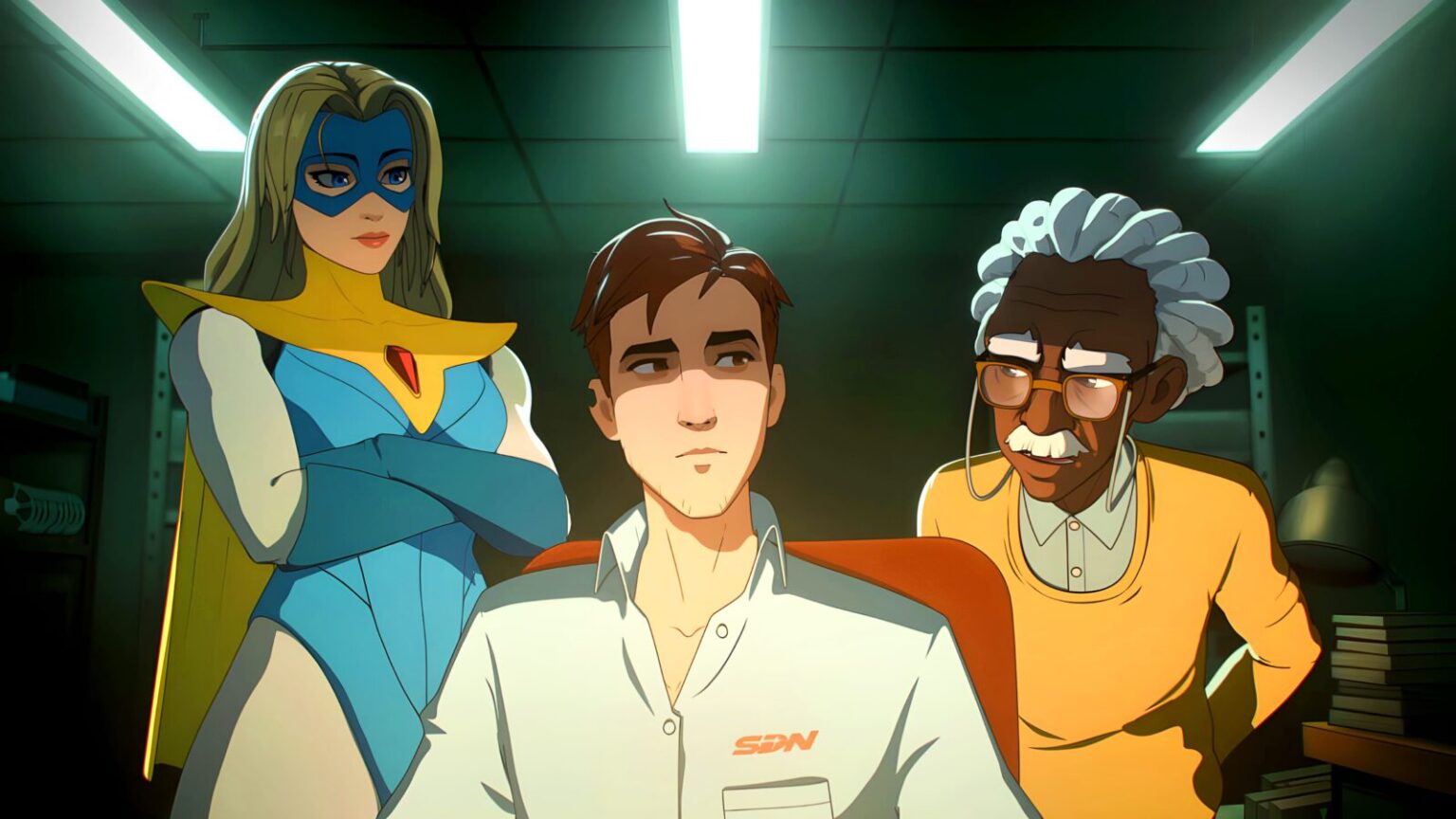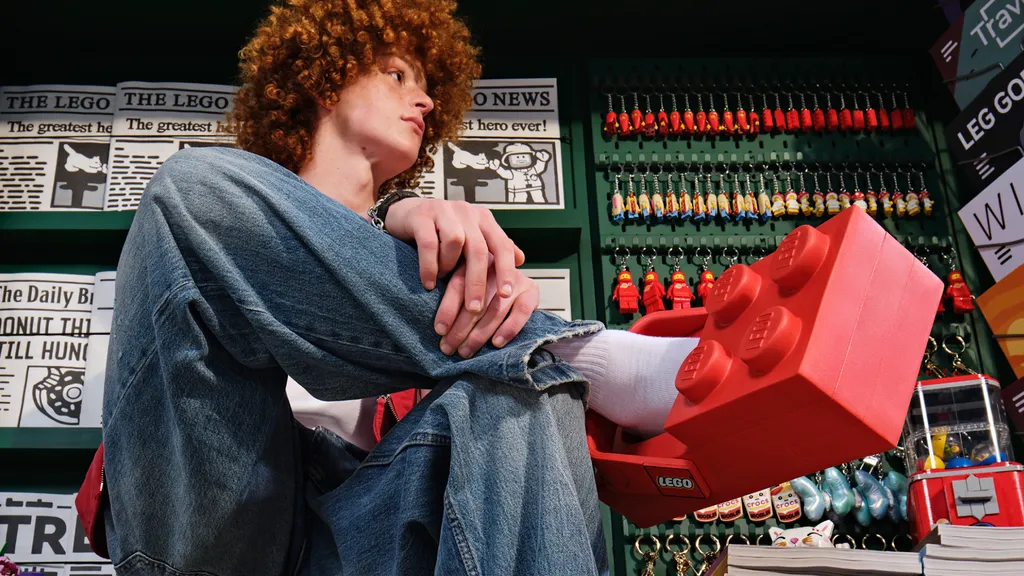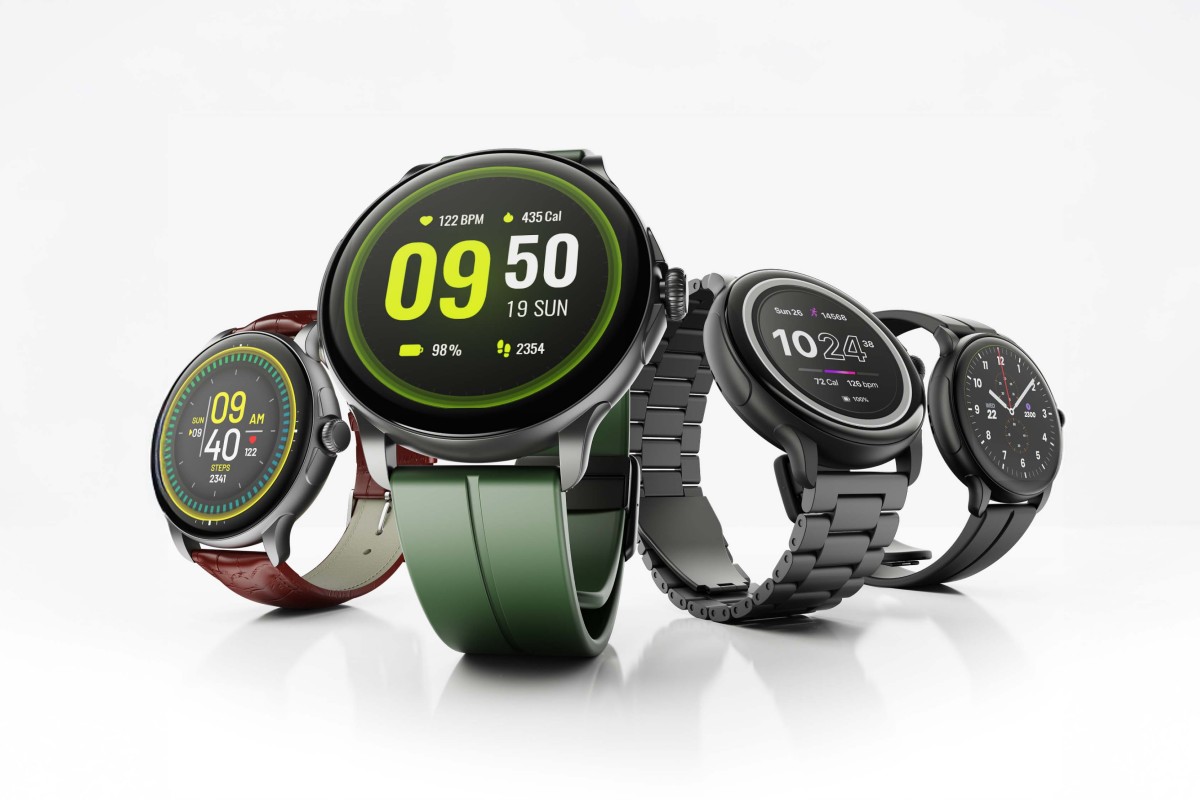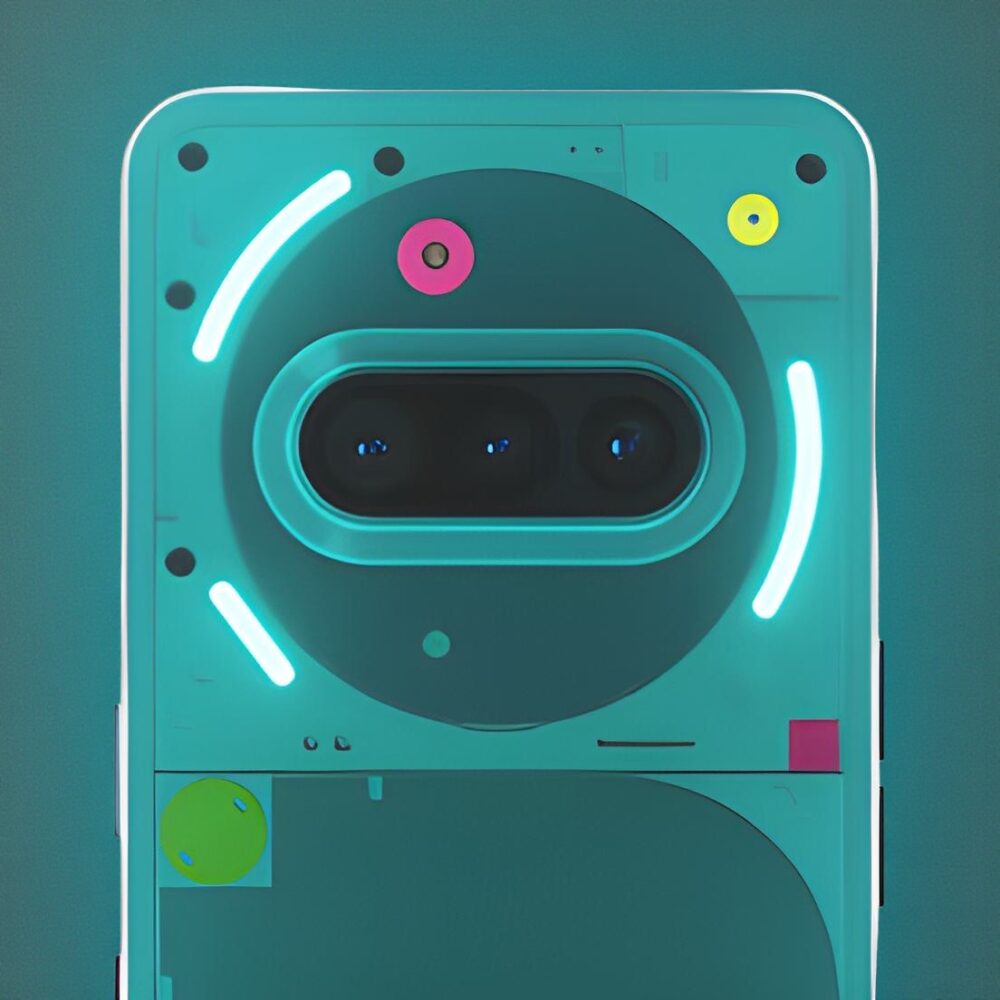TL;DR: Dispatch is a heartfelt, funny, beautifully acted superhero adventure with great characters, great writing, and choices that don’t matter as much as they should — but the story is so strong you’ll want to play it anyway.
Dispatch
There’s a particular era of gaming that lives permanently rent-free in my head. Early 2010s. That window of time when Telltale Games felt less like a studio and more like a cultural phenomenon. When every game night with friends came with the sacred ritual of debating whether someone made the “right” choice in The Walking Dead Episode 3. When the industry briefly decided that every IP deserved an episodic format, for better or worse.
Dispatch, the new superhero adventure from AdHoc Studio, doesn’t just remind me of that era — it practically yanks me back through a tear in the space-time continuum, plops me into 2013, and hands me a controller coated in the nostalgia of cinematic choice-driven storytelling.
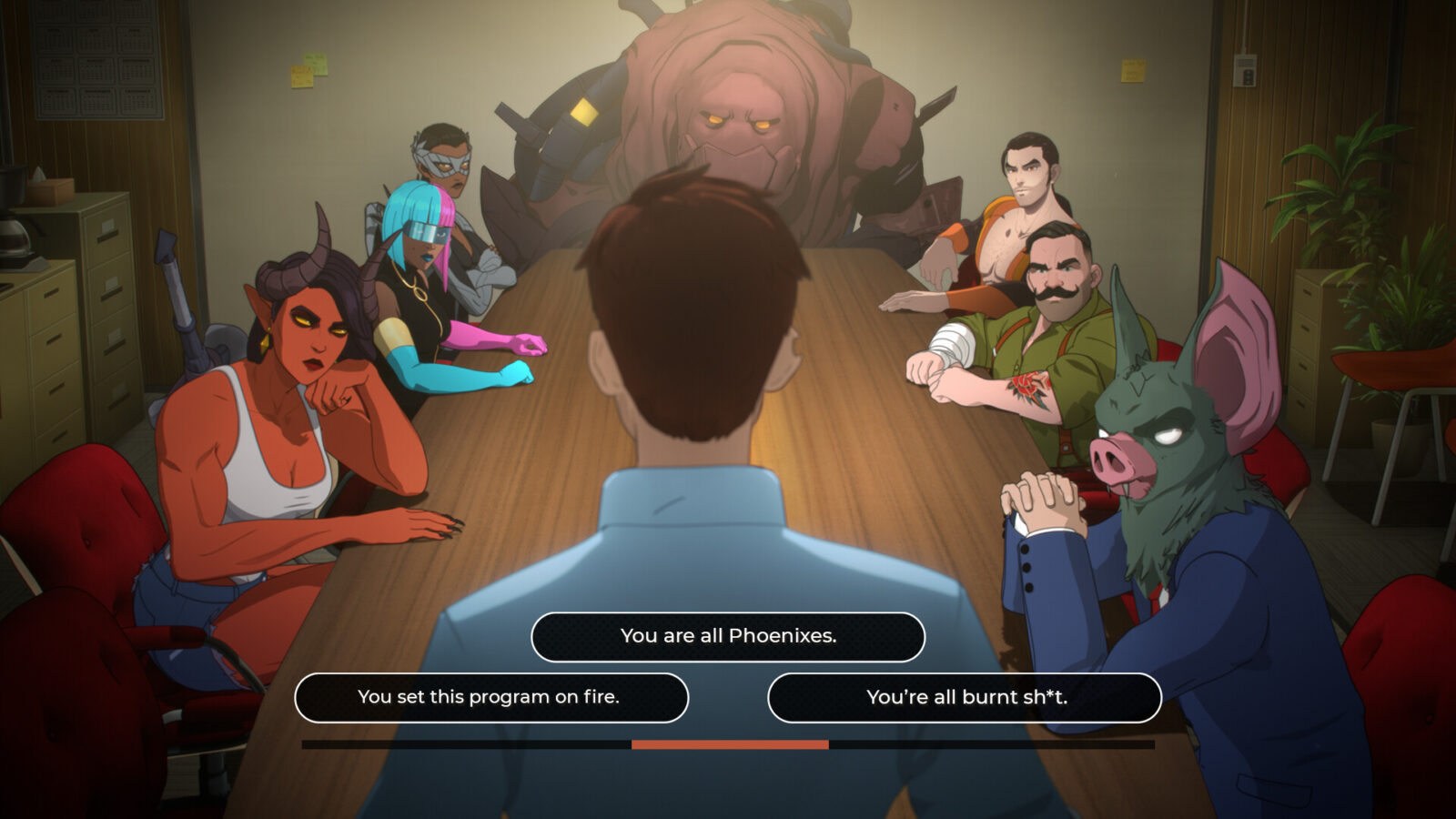
But here’s the strange thing: Dispatch doesn’t feel retro. It feels comfortable, like slipping back into a hoodie I haven’t worn since college only to realize, “Huh. This actually looks great again.”
And it turns out that hoodie still fits because Dispatch understands something many games chasing the Telltale vibe completely forget: the magic was never just the choices. It was the characters. The awkward humor. The crunchy emotional tension that sits behind every line of dialogue. Dispatch nails those parts beautifully — even when the “choices” themselves wobble like a Jenga tower built on a lazy Susan.
A Superhero Story About Being Washed-Up… But Not Hopeless
Dispatch stars Robert Robertson III, known previously as Mecha Man — which, yes, is an extremely on-the-nose superhero name, and yes, the game absolutely knows it. He’s the rare kind of hero who wasn’t bitten by a radioactive rodent or born under an unlucky constellation. Robert was just a dude with a big brain, a big mech suit, and an even bigger desire to help people.
Now the suit is toast. The career? Kaput. The existential dread? Through the roof.
But Dispatch decides to do something most superhero media simply refuses to attempt: it lets its protagonist be both depressed and genuinely good. Robert doesn’t mask his feelings behind quips. He doesn’t spiral into gritty anti-hero territory. He simply tries — earnestly, awkwardly, beautifully — to keep helping people however he can.
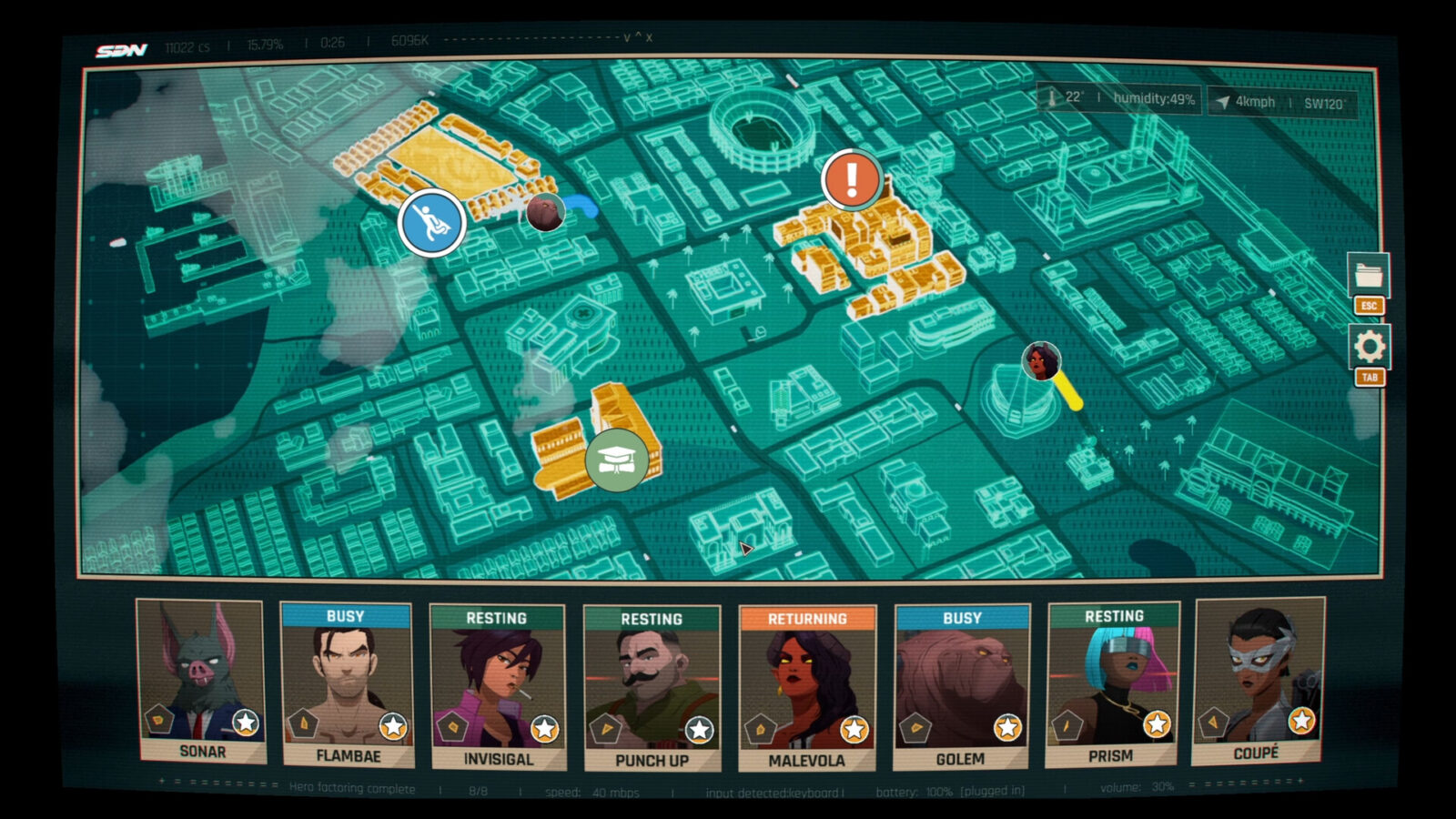
In this case, that “however” means taking a job as a dispatcher: the guy in charge of guiding a team of ragtag ex-villains on missions around the city. Think of him as a cross between a life coach, a mission control operator, and the one coworker in the office who has patience for everyone’s nonsense but secretly needs a nap.
From the moment Robert sits at his workstation, Dispatch morphs into a superhero-flavored managerial drama where every emergency call reads like a chaotic Mad Libs puzzle. A citizen might be panicking about a bomb that needs diffusing yesterday, or someone might be begging for help breaking up a fight but insists — very pointedly — that no one uses violence. You have to parse the wording carefully and assign the right ex-villain to the job.
In other words: it’s like running the world’s messiest Uber for Heroes.
A Cast of Former Villains Who Quickly Become the Heart
The real joy of Dispatch is the ensemble cast, a carnival of weirdos who make the term “former supervillain” feel like an undersell. There’s Coupé, a winged assassin whose mobility and intellect make him your go-to multitool. There’s Malevola, a half-demon portal-slinger who’s equal parts terrifying and amusingly over-it. There’s Golem, who absorbs damage like he’s being paid by the bruise.
And then there’s Invisigal.
If Dispatch had box art, she’d be on it.
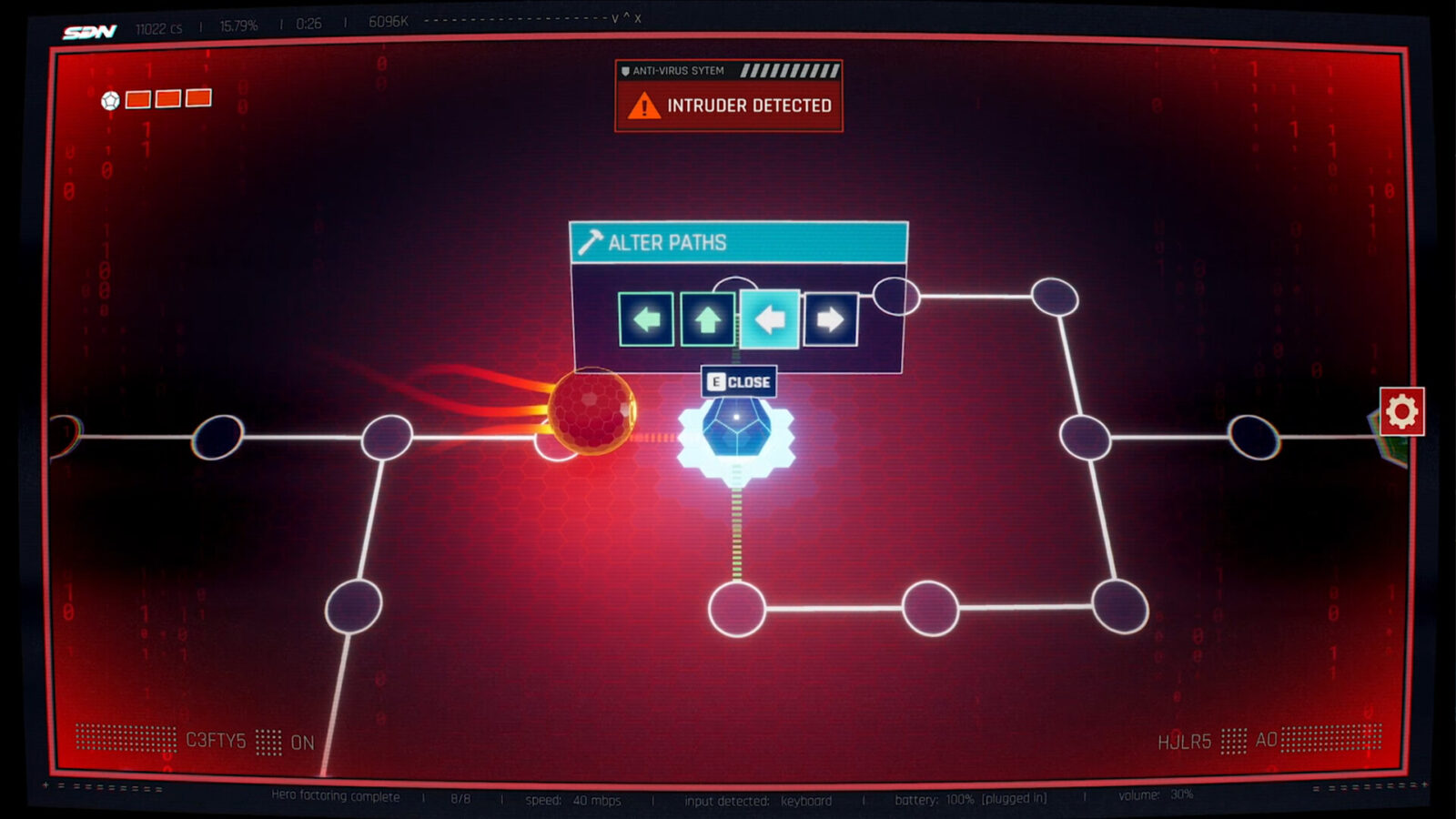
Invisigal is the character who made me lean forward in my chair — the one whose arc feels deeply personal and wonderfully messy. She’s convinced her invisibility powers doom her to villainy, like fate is a permanent tattoo she refuses to laser off. Robert’s journey with her is the emotional backbone of the game. Their relationship — whether platonic or romantic — becomes a slow, subtle, beautifully written exploration of identity, self-worth, and choice.
Aaron Paul voices Robert with a kind of weary warmth that feels instantly lived-in. Laura Bailey brings Invisigal to life with a jittery, vulnerable charisma that’s impossible not to root for. Their dynamic is so good it actually makes the game’s illusion of choice sting a little sharper — because I wanted my decisions to matter for these characters.
A Gameplay Loop Built on Reading People More Than Saving Them
Dispatch’s missions run on a tense clockwork rhythm. Calls come in, you analyze the situation, pick the right hero, and pray the dice roll goes your way. Sometimes you’ll send a single specialist. Sometimes a duo. Sometimes you throw half the roster at a situation because you’re terrified of the consequences.
The management layer unfolds like a steady drip of meaningful micromoments. Heroes gain XP, level up, and expand their stats. Certain combinations of characters build synergy bonuses. After enough missions, everyone starts evolving in ways that feel like the final season of an office comedy, where every subplot begins colliding with every other in strangely wholesome ways.
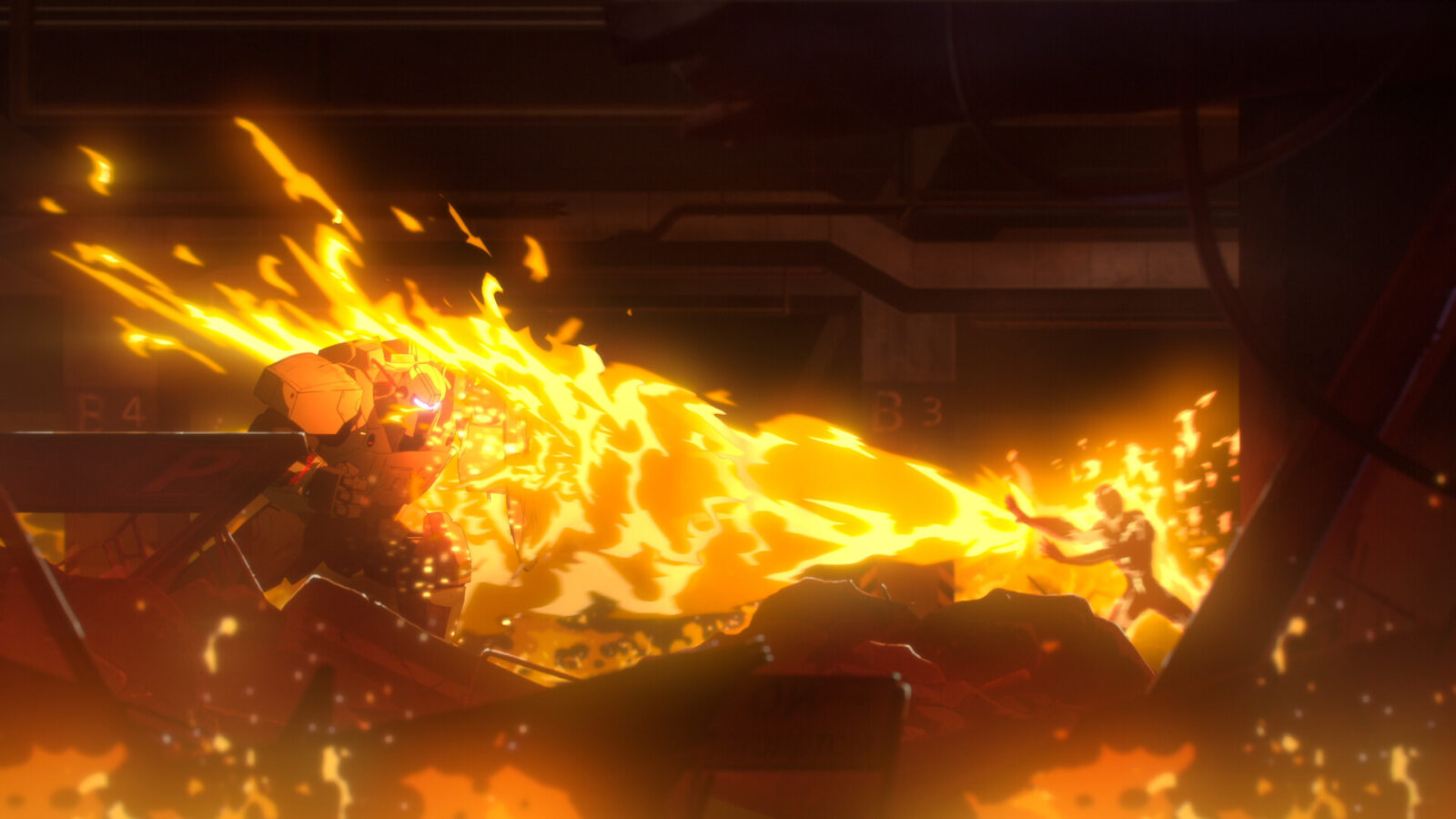
The hack-minigame sections — where Robert personally intervenes via tech wizardry — are a fun change of pace, even if they occasionally role-play as that one infuriating mobile game ad you’re convinced you could solve better. Still, they inject just enough tension to keep the monotony at bay, especially when the antivirus starts hunting you like a glowing red Roomba of doom.
Where Dispatch Fumbles: Choice Without Consequence
This, right here, is where the cape starts to snag on the pavement.
Dispatch sells itself like a choice-driven game, but its major narrative decisions always feel like they’ve already been pre-selected by a writer’s room you weren’t invited to. Small choices matter. Character flavor matters. But the big swings? Not so much.
There’s even an early moment where you’re told you must fire the lowest-scoring team member. It seems like a huge leadership decision. A turning point. A shaping of your team’s future. Except… it’s always between the same two characters. And the game will quietly shove you along even if you try to dodge the choice entirely.
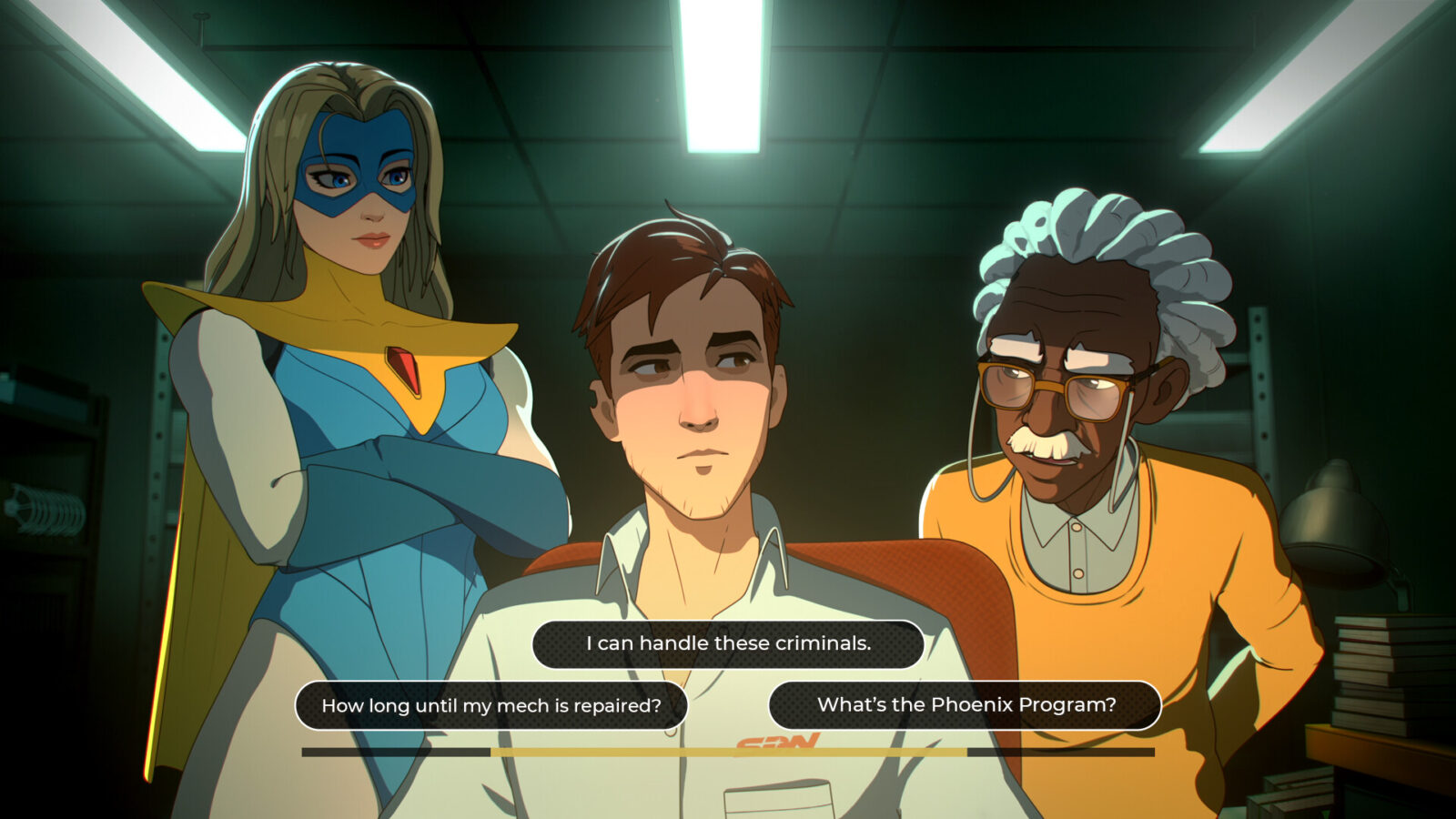
For a story built on the idea that “our choices define us,” this design choice walks face-first into irony with all the grace of a Looney Tunes punchline.
Yet somehow? The whole thing still works. Or rather, the writing is strong enough that the cracks don’t ruin the experience. If I’m being honest, Dispatch plays less like a branching video game and more like a prestige superhero TV show with occasional input. And you know what? I still couldn’t stop playing.
Invisigal’s Arc Saves the Emotional Payoff
While many choices lack weight, Invisigal’s story is the exception that proves the rule. Your relationship with her directly shapes the ending — not dramatically, not explosively, but meaningfully. It’s enough to give the illusion of agency when the credits roll, like you nudged something in this world in the right direction.
It also left me with the quiet hope that Dispatch gets a sequel. Because if this is only the beginning of Robert’s next chapter, AdHoc Studio has set the stage for something wonderfully bold.
Dispatch Isn’t a Game About Being a Hero — It’s a Game About Becoming One Again
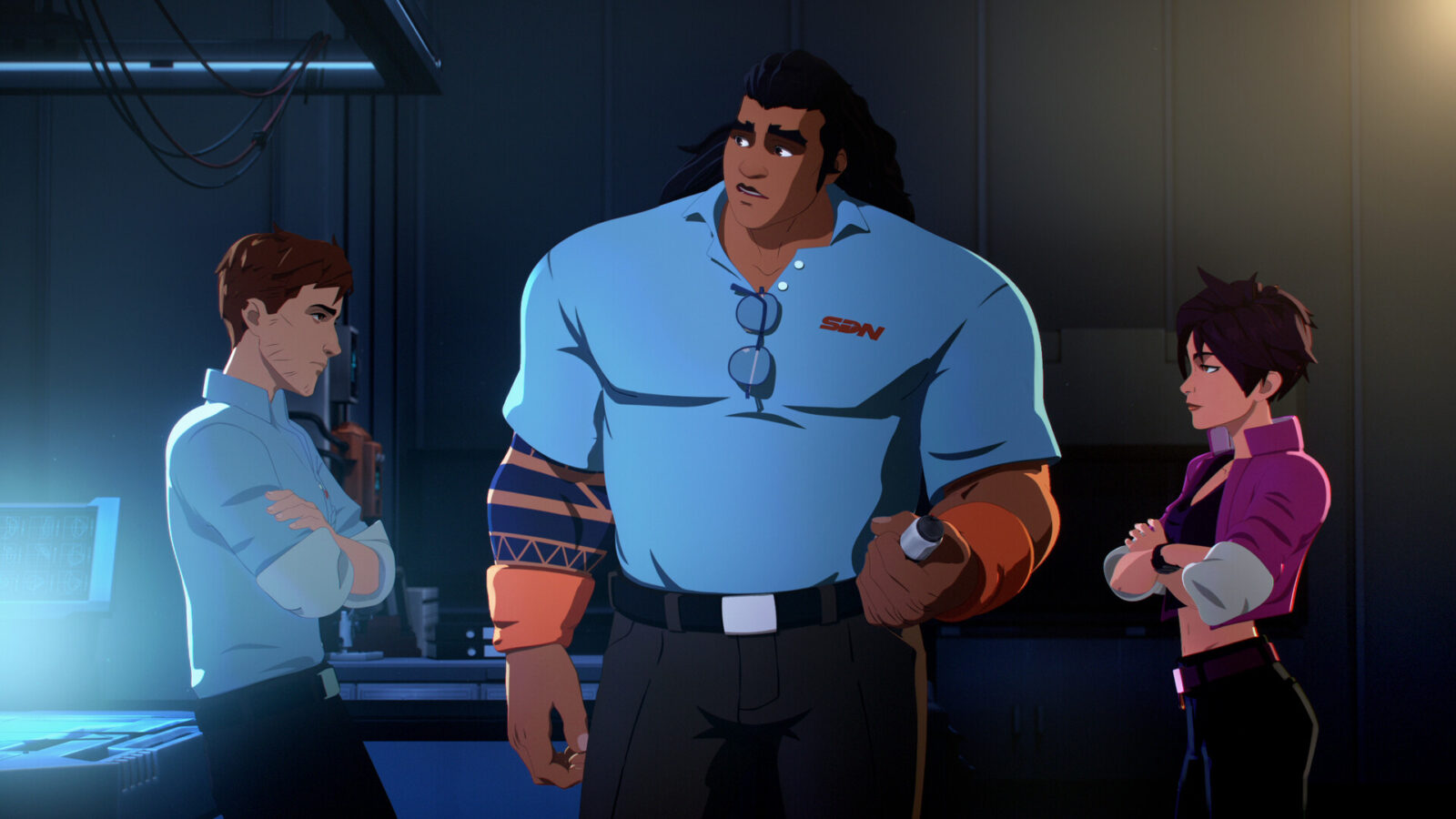
I didn’t expect Dispatch to hit me as hard as it did. I thought I was signing up for a superhero management sim with some dialogue choices sprinkled on top. Instead, I got a deeply human drama about burnout, mentorship, found family, and the absurdity of trying to rebuild your life after losing everything that defined you.
The illusion of choice may falter, but the heart of the narrative never does. The writing is sharp, funny, refreshingly sincere. The voice acting is stellar. The character dynamics carry the weight that gameplay occasionally drops.
Dispatch doesn’t revolutionize the genre — but it revitalizes it, reminding me why I fell in love with story-first games in the first place.
Verdict
Dispatch plays its hand with confidence: a character-driven superhero story draped in nostalgic Telltale energy and powered by an unexpectedly tender emotional core. Its biggest flaw — the lack of meaningful branching choices — can’t dim how delightful its cast is or how compelling its themes of mentorship, redemption, and self-doubt become. If this were a TV show, I’d be begging for a second season. As a game, I’m simply grateful it exists, flaws and all, because few titles this year have left such a warm imprint on me.


